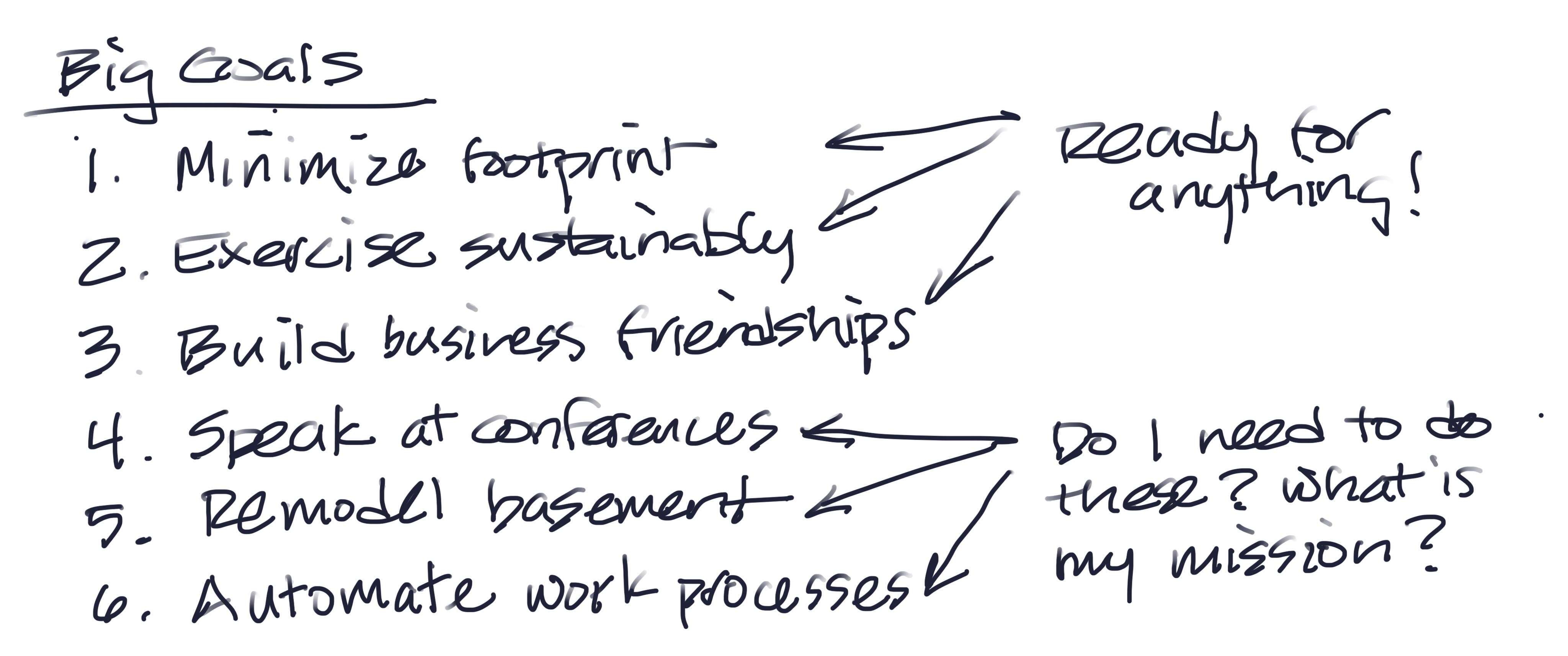When we create New Year’s resolutions, we are using project management skills to achieve a personal goal. We can use detailed upfront planning, adaptive planning, or no planning. What approach works best for happier outcomes?
How will you plan?
Your planning style will likely determine whether you persist and achieve.
The best laid schemes of Mice and Men Go oft awry.
Robert Burns
Detailed upfront planning
Most people assume detailed upfront planning works best. They optimistically plan a year or more in advance, with specific milestones delivered at specific dates. They think they will forge ahead relentlessly, achieving success or failure by a succession of deadlines.
But there are many pitfalls ahead. They face many unknowns: if they are trying to lose weight, they probably don’t know how fast they can safely lose, and whether they can maintain it. They probably don’t know whether their family will encourage or hinder their weight loss. Unpredictable events happen to all of us: they might have to move, deal with a friend’s health crisis, or find a job. If they miss a date, they have to make up the time somehow, by working harder or taking more risks. Uncertainties torpedo many well-structured plans, and they can easily waylay theirs, and yours.
Adaptive planning
Adaptive planning starts with a very general goal and then plans specific short-term sub-goals “just in time,” adapting the next goal based on experience from previous goals. Then, thoughtfully sequence sub-goals to learn more about your goal and capabilities. Don’t plan a full year of sub-goals, otherwise you are planning upfront.
For example, if you want to exercise more, consider generalizing your goal to “improve cardio health” to give yourself greater flexibility, then set a first sub-goal to “time a 1 kilometer run three times this week.” That first result informs you about running and your abilities, so you can set a realistic goal for next week. If a unexpected disruption interferes, you can substitute a different exercise, study sustainable running techniques, or measure your blood pressure, which contributes to your general goal to improve cardio health.
No planning
No planning waits for opportunities to fall out of the sky. Planning is easy: do nothing. You may have a bunch of goals, but prefer not decide between them all. You may have a goal so broad, such as “I want to be successful,” that you can’t figure out where to start. Or you might fear commitment or failure. Or you might like to drink whiskey and goof off all day. But even with no planning, you’ll get better results by preparing yourself to act rapidly when opportunities arise. We will talk about those techniques in this series. Laying the groundwork for opportunism is essentially a project. In many cases, it’s a great first step to success.
What works?
Adaptive planning beats detailed upfront planning in project success, based on a lot of data. In software projects, which combine the creative efforts of smart people, detailed upfront planning produces a 30% project failure rate, while adaptive planning produces a 9% failure rate. If you have worked with artists, architects, designers, or entrepreneurs, you can readily understand why upfront planning often fails: you are embarking on something you’ve never done before, and it isn’t very predictable. If you are trying to lose weight sustainably, previous efforts didn’t work. Something unexpected caused your plan to fail before, and some other unexpected thing will likely cause it to fail this time.
Can we succeed with no planning? On a personal level, many people (including me) believe operating in the present moment leads to greater happiness. Taken to an extreme, this philosophy might argue against college education, against taking initiative, against ambition, all in the service of happiness. A variation where we operate in the present moment most of the time, but leap into action to exploit an opportunity, could allow us to win, and win big. So don’t worry if you don’t want to plan, this series will help you succeed, too.
Example
One of my pals shared her goals for 2019, and here’s what she wrote
What I want from 2019 is to not feel overwhelmed any more, to not have a huge cloud hanging over my head, to stop holding my breath waiting for the other shoe to drop.
What I DON’T want from 2019 is to stop giving a shit, and to leave other people responsible for what I truly wanted to accomplish.
How to get there: I need to work on identifying all the commitments, prioritize them, let go of some things, and be able to make an informed decision about whether to say yes or no to new items.
This is a great goal, probably for most of us. Achieving it means my pal will be able to direct her own future, instead of letting squeaky wheels and crises dictate her future. Colleagues have developed to handle these issues, which we will discuss in later posts.
Let’s see how we might create an adaptive plan for my friend’s goals. I created two big, somewhat vague goals for the year, but then built more specifics into three easier goals for the current two months, three more specific and easier sub-goals for this week, and very specific and super-easy sub-goals for today.

Try it
Let’s try using adaptive planning together. I promise to help you out.
Give yourself a few moments to think about the coming year. What would you like to achieve in 2019? The most common New Year’s resolutions are these:
- lose weight
- exercise more
- quit smoking
- managing debt
- save money
- get a better job
- get a degree or certification
- take a trip
- volunteer
If you prefer no planning, let me suggest some options:
- become happier
- prepare to exploit unexpected opportunities
- reduce stress
- deepen my relationship with spouse or family
If you’re interested in feedback, which helps tremendously when you are doing adaptive planning, please add your goals as comments to this post. I will happily provide feedback to anyone who posts their goals.
If you are interested in research related to goal-setting, you might check out https://senexrex.com/driving-purpose/.




Leave a Reply
You must be logged in to post a comment.